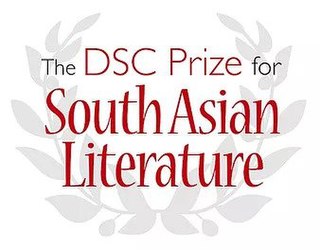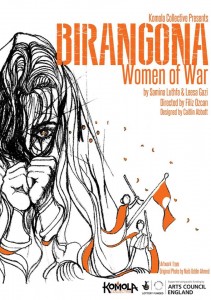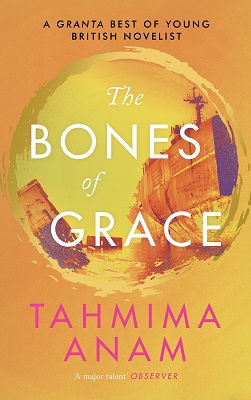Golden Age refers to a mythological period of primeval human existence perceived as an ideal state when human beings were pure and free from suffering.

Rokeya Sakhawat Hossain, commonly known as Begum Rokeya, was a prominent Bengali feminist thinker, writer, educator, professor, teacher and women empowerment and political activist for Muslim girls from East Bengal, undivided Bengal in present-day Bangladesh.
Misir Ali is a fictional character in a series of novels by Bangladeshi author Humayun Ahmed. He was described as one of the most famous characters in Bengali literature, TV and film over the last three decades.

Nadeem Aslam FRSL is a British Pakistani novelist. His debut novel, Season of the Rainbirds, won the Betty Trask and the Author's Club First Novel Award. His critically acclaimed second novel Maps for Lost Lovers won Encore Award and Kiriyama Prize; it was shortlisted for International Dublin Literary Award, among others. Colm Tóibín described him as "one of the most exciting and serious British novelists writing now".
Tahmima Anam is a Bangladeshi-born British writer, novelist and columnist. Her first novel, A Golden Age (2007), was the Best First Book winner of the 2008 Commonwealth Writers' Prizes. Her follow-up novel, The Good Muslim, was nominated for the 2011 Man Asian Literary Prize. She is the granddaughter of Abul Mansur Ahmed and daughter of Mahfuz Anam.

A Golden Age is the first novel of the Bangladesh-born writer Tahmima Anam. It tells the story of the Bangladesh War of Liberation through the eyes of one family. The novel was awarded the prize for Best First Book in the Commonwealth Writers' Prize 2008. It was also shortlisted for the 2007 Guardian First Book Award. The first chapter of the novel appeared in the January 2007 edition of Granta magazine.

Mahfuz Anam is a Bangladeshi journalist. He serves as editor and publisher of The Daily Star, one of Bangladesh's largest circulating English-language newspapers. After working in the United Nations for 14 years, Anam co-founded the newspaper with his mentor Syed Mohammad Ali in 1991 during Bangladesh's democratic transition. His criticism of the country's two largest political parties and the military has often resulted in him being sued in court; Anam dismisses the charges as attacks on press freedom. He was elected for a second term as chairman of the Asia News Network in 2022 and 2023.

There have been numerous works of art created as a result of the Bangladesh Liberation War. In 1971, a concert was organized by members of the British rock band, The Beatles, in support of Bangladesh. The songs recorded for and broadcast on Swadhin Bangla Betar Kendra are still considered to be the best of Bangladeshi protest songs.

The DSC Prize for South Asian Literature is an international literary prize awarded annually to writers of any ethnicity or nationality writing about South Asia themes such as culture, politics, history, or people. It is for an original full-length novel written in English, or translated into English. The award is for novels published in the year preceding the judging of the prize. The winner receives 25,000 USD. The DSC Prize was instituted by Surina Narula and Manhad Narula in 2010 and its vision is to showcase and reward the best writing about the South Asian region and bring it to a global audience.
Munem Wasif is a photographer from Bangladesh.

Dhaka Lit Fest is an annual literary festival held in Dhaka, Bangladesh. Since 2012, it has been held every November in the grounds of Bangla Academy with sessions held over three days, primarily in English.

The Black Coat is a historical novel by Bangladeshi-Canadian author Neamat Imam. It is "a meditation on power, greed and the human cost of politics." The Sunday Guardian commented that it is "destined to be a future classic" and will be used as the "gold standard for any book which seeks to engage with South Asian politics or history."
Bangladeshi English literature (BEL) refers to the body of literary work written in the English language in Bangladesh and the Bangladeshi diaspora. The historical background of interpolation of English in this region dates back to the British colonial period. English touched the land through the historical process—the historical process of British colonization over the land. However, the thought of creative writing in the colonizer's language inflames the idea that it is a deliberate choice by the native people who exploit—to emphasize more—the language in a way which exceeds the possibility of language to be used only as a communicative medium. Here the first question comes to the issue of taking up English as a medium of creative writing, in which Bankim and Michael Madhusudan underwent a deliberate trial to emerge as writers. The process of writing in English is ever-expanding and now uses a new term, "Bengali English Literature", rather than "Bangaladeshi English Literature". In academia, it is also now referred to as Bangladeshi Writing in English (BWE). Early prominent Bengali writers in English included Ram Muhan Roy, Sake Dean Mahomed, Bankim Chandra Chatterjee, Begum Rokeya and Rabindranath Tagore. In 1905, Begum Rokeya (1880–1932) wrote Sultana's Dream, one of the world's earliest examples of feminist science fiction. Modern writers of the Bangladeshi diaspora include Tahmima Anam, Neamat Imam, Monica Ali and Zia Haider Rahman.
Leesa Gazi is a Bangladeshi-born British writer, playwright, theatre director and actress based in London.

Birangona: Women of War is a British one-act play by Leesa Gazi about the untold true stories of female survivors and sufferers, Birangona, of the Bangladesh Liberation War, during which over 200,000 women were raped and tortured. The theatrical production is dedicated to narrating the stories of war heroines from their perspective.

The Bones of Grace is a novel by Tahmima Anam. It is the third novel and final part of her Bengal trilogy, following A Golden Age and The Good Muslim.
Anam Zakaria is a Canada-based Pakistani writer, oral historian and educator. She is the author of the prize-winning book The Footprints of Partition: Narratives of Four Generations of Pakistanis and Indians (2015) and 1971: A People's History from Bangladesh, Pakistan and India (2019).
Firdous Azim is a professor of English at BRAC University, a literary critic, and a women's rights activist. She is the chairperson of the Department of English and Humanities at BRAC University. She is a member of Naripokkho.











